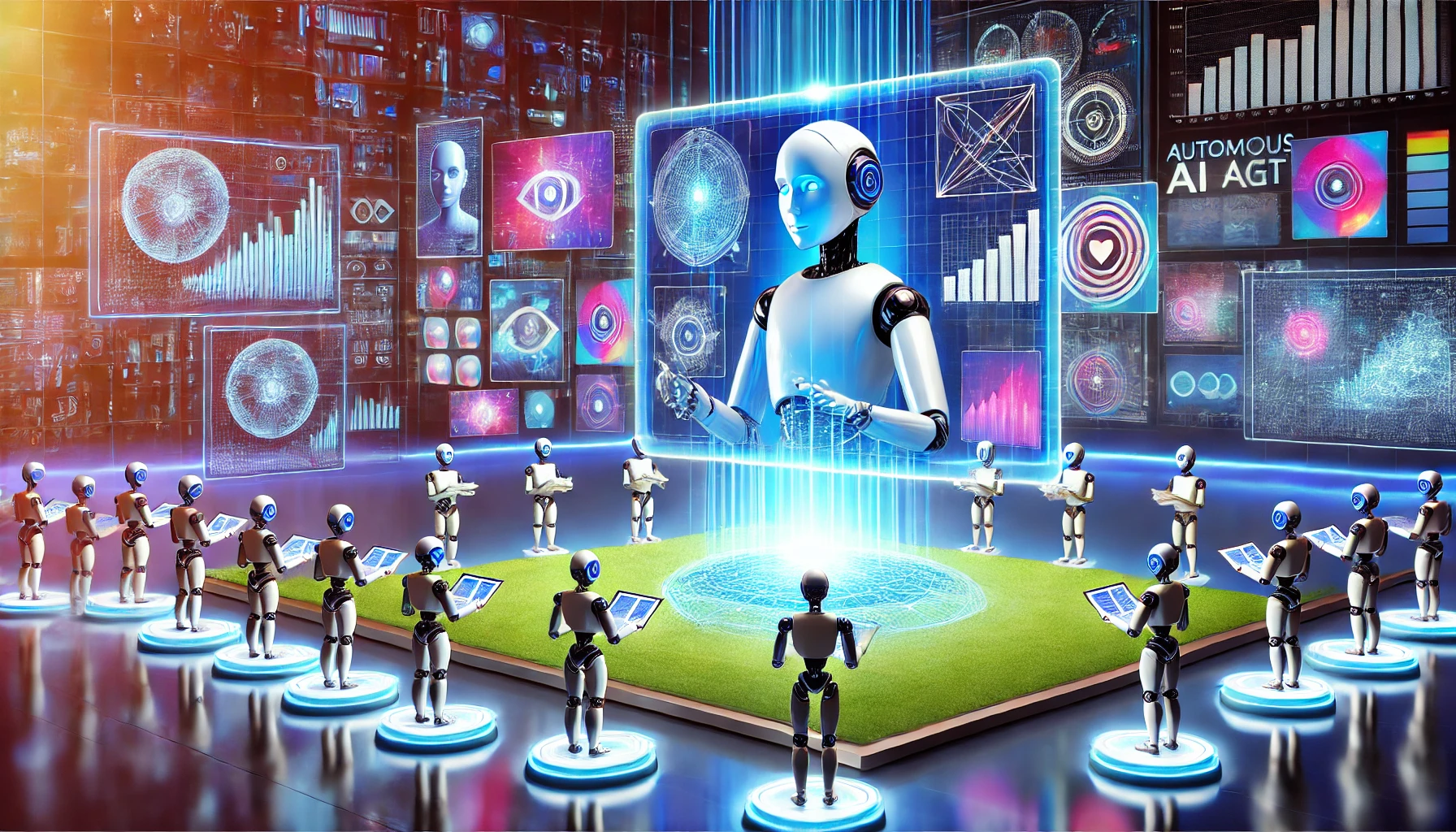As advertisers adapt to generative AI, they now face a new, rapidly evolving AI-driven disruption: autonomous AI agents.
AI agents go beyond automation—they manage tasks independently, requiring minimal human oversight. They can create, adjust, and complete tasks, handling everything from managing ad campaigns to analyzing consumer sentiment across channels.
Like generative AI, AI agents performs complicated tasks for you. But after you train an AI agent, they perform their work without needing your oversight, whereas generative AI applications require people to prompt them and then continue prompting them with follow-up questions and directions.
You can build AI agents to do any complex marketing assignment, including managing ad campaigns, or you can use a commercial model from businesses such as Salesforce. Either way, their popularity brings up a question many advertisers are wrestling with: will AI agents ultimately replace traditional advertising? As Jeremiah Owyang speculates, the power of these agents to make decisions and interact with digital content autonomously could disrupt the very need for conventional ads, especially when consumers’ own automoous agents might selectively filter or prioritize content on their behalf.
Autonomous agents won’t replace ads anytime soon. But as always, we believe it’s important to familiarize yourself with this emerging technology.
Recommendations for Advertisers Navigating AI Agents in Advertising
Autonomous agents offer advertisers new tools to automate, personalize, and optimize campaigns in ways that weren’t possible before. But as with any technological leap, this shift demands a balanced approach—one that applies the efficiency of AI without compromising the strategic insight only humans can bring. To stay competitive and relevant in a landscape where autonomous agents might soon play an integral role in how consumers discover and engage with brands, advertisers need to implement AI thoughtfully, with a clear strategy for integration, oversight, and adaptation.
Design AI Agents with Human Oversight in Mind
AI agents can optimize campaigns in real-time, but human oversight remains essential. Anyone who has managed campaigns with Google or Meta’s AI-powered tools knows that automated advertising without human monitoring risks budget misallocations and potential brand missteps. Integrate AI agents into your strategy, but designate team members to oversee AI actions and adjust when needed.
Embrace AI-Friendly Content Creation
As autonomous agents increasingly interact with brand content, advertisers must ensure their digital assets are “AI-friendly.” This means creating clear, structured content that AI agents can quickly interpret. Like optimizing for voice search, crafting concise and well-organized web pages now helps prepare for the growing role AI agents will play in content discovery. Consider, for instance, building product pages that present information in a clear hierarchy, making data points easily accessible to agents navigating the site.
Automate and Enhance—Don’t Replace
Use AI agents to manage repetitive tasks like social media posting and basic customer segmentation, allowing human teams to focus on creative and strategic aspects. AI agents can support content creation by analyzing keywords for SEO or recommending adjustments to align with brand tone, but they should complement, not replace, human creativity. The goal is to enhance the team’s effectiveness, not eliminate the human touch.
Use Real-Time Campaign Management
Autonomous agents can monitor and adjust campaigns as they run, optimizing ad spend, targeting, and message frequency based on real-time feedback. For example, use an AI agent to track key metrics and make minor adjustments to targeting parameters, thus refining campaigns without interrupting their flow. This real-time adaptability can increase engagement and maximize ROI without constantly burdening human teams with manual monitoring.
Proactively Engage Users Through Personalization
In a future where consumers might use agents to filter brand content, personalized re-engagement becomes more important than ever. Program AI agents to detect signs of user disengagement and automatically trigger tailored campaigns to re-engage at-risk customers. By personalizing your approach, you can reach users before they opt out of your ecosystem, creating a proactive retention strategy.
Bottom Line: agents bring incredible efficiencies and opportunities to enhance advertising, but their power must be used thoughtfully. Building a strategic foundation where agents support—not replace—human judgment is key. With the right balance of automation and human oversight, advertisers can maximize the potential of agents, navigating a complex new era where brand relationships are shaped by autonomous digital interactions.
True Interactive can help you succeed with all forms of online advertising. Explore our website to learn more.
